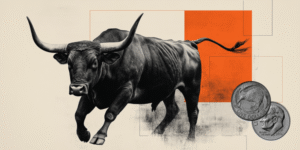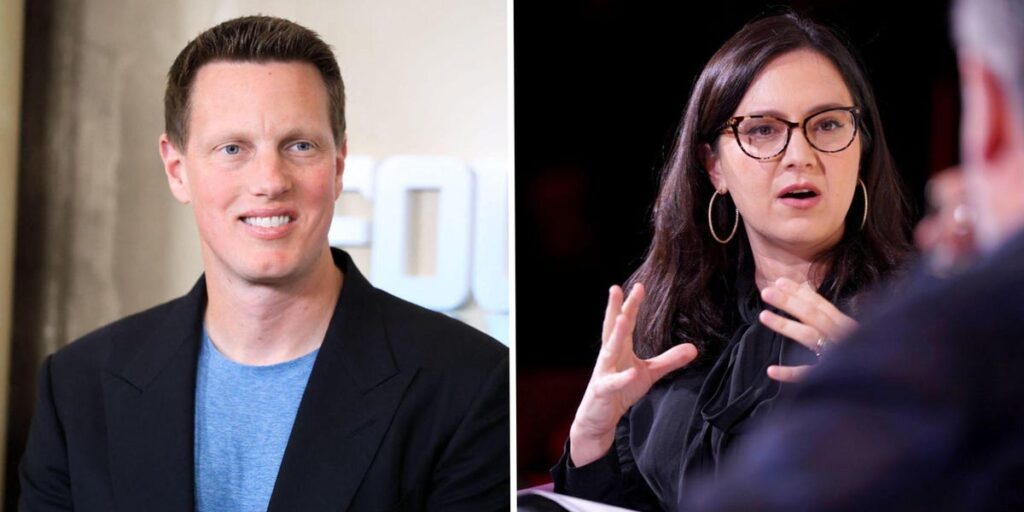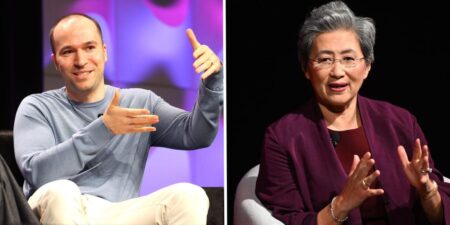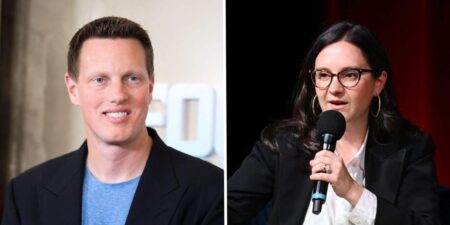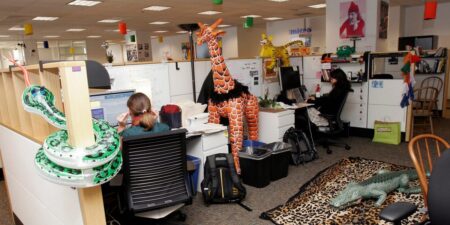David Ellison keeps saying he’s not interested in politics. The new Paramount CEO/owner says it in interviews, to staff, to regulators.
But over the last year, as Ellison maneuvered to buy the company and since he acquired it, Paramount has made a series of moves that sure make it look like he’s interested in politics. And those politics look like they’re on the right side of the spectrum.
Ellison has promised regulators, for instance, that his company won’t engage in any kind of DEI practices — practices that had become standard issue in corporate America before the return of the Trump administration. Ellison also promised to install an ombudsman to monitor complaints about bias — and that ombudsman turned out to be someone with conservative credentials.
A few weeks before Ellison closed his deal to acquire Paramount, the company announced it was canceling “The Late Show with Stephen Colbert,” one of the most openly anti-Trump shows on late-night TV.
And now Paramount has acquired The Free Press, the media startup founded by Bari Weiss, a former editor and writer at The New York Times. Weiss will now be editor in chief of Paramount’s CBS News unit, reporting directly to Ellison.
Weiss’ fans — and there are plenty of them, including Mathias Döpfner, who owns the company that owns Business Insider — will often describe her as a centrist who calls out excess on both sides. Weiss likes to describe herself that way, too.
But The Free Press isn’t neutral. It was built as a counterweight to what Weiss describes as doctrinaire liberal groupthink in mainstream newsrooms — first at The New York Times, which she left in 2020, and now across establishment media more broadly. In 2022, shortly after Elon Musk acquired Twitter, Musk invited Weiss to root around the company’s internal files so she could produce stories critical of the previous management’s woke regime.
This doesn’t mean Ellison has turned Paramount, whose reps didn’t respond to comment for this story, into Fox News.
Before Ellison finalized his Paramount acquisition, he signed off on a $1.5 billion deal to lock down “South Park” — a franchise that has gleefully mocked Trump, and went out of its way to do so after the recent payday.
And while lots of observers, including Stephen Colbert, believe Colbert’s show was canceled to appease Trump, no smoking gun has emerged to prove that claim. There’s also no evidence of Ellison’s hand shaping the politics of any other Paramount output to date.
Still. Even if the day-to-day programming hasn’t shifted, the signals matter. There’s been chatter about whether Paramount overpaid by spending $150 million on The Free Press — a small, subscription-based startup — especially as it’s cutting staff elsewhere. But that debate misses the point: This isn’t a financial bet, it’s a cultural one. Ellison isn’t buying revenue; he’s buying alignment.
So what’s he aligning with? That’s the hard part to parse.
Maybe Ellison, who previously supported Democrats — or his father, Larry Ellison, an open Trump supporter — genuinely believes the media is too liberal and needs to be moved rightward. Maybe he’s simply appeasing Trump and his allies, like FCC chair Brendan Carr, who had real power to slow or stop his merger. Either explanation fits the facts.
But that’s exactly the problem: We can’t tell which one is true. And that uncertainty is what defines this moment in American business and media.
Read the full article here


